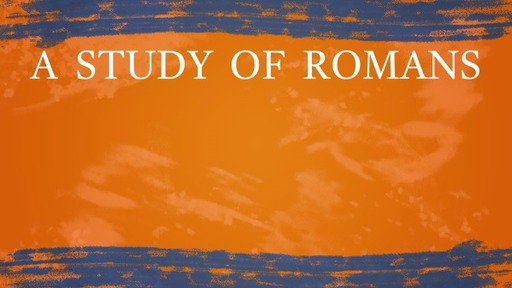A Study of Romans (26)

The first thirteen verses of Romans 7 just naturally divide themselves into two sections. The point of the first six verses can be simply summarized by this: We are “dead to the law.” The Mosaic system does not now have dominion over us. The significance of this truth will become clearer as we expound these six verses.
Dominion
Now Paul turns to the question of the law’s dominion over a sinner. There is a close relationship between sin and law: 1 Corinthians 15:56 actually says “The strength of sin is the law.” When sin has dominion, so does the law. If Paul has described the broken dominion of sin, he will now describe the broken dominion of the law.
One answer is that the law serves to make sin fully known: All the variety and excess of sin is fully exposed by the light of the law. And since the law cannot deliver from sin, then sin in effect thrives by the law. Another answer is that the law demands a penalty for sin.
Thus the law is “reigning” over them, and that dominion finds its strength in the sin of which the transgressor is guilty. Thus sin and the law join hands in dominion over the unsaved man.
Principle
The nature of the specific problem is that “the law has dominion over a man as long as he liveth.”
What Paul means is that the unsaved man is permanently under the law’s dominion. This “dominion” remains in force so long as he lives. Man in sin cannot ever free himself from that dominion.
Such is the magnitude of the problem faced by the unsaved man as he stands before the law of God, required to be something he cannot be, and sentenced thereby to death.
Example
First, he prepares us for that solution with an illustration. The illustration concerns the bond created between man and woman at marriage. That bond can be broken by the death of one of the partners.
The point of the illustration is that the marriage bond is divinely ordained to be permanent, and the only circumstance that can break that bond without violation of God’s ordained plan is death.
Deliverance
Now Paul applies the illustration and makes the point he has been aiming for: The Christian has been fully set free from the “dominion” of the law.
And just how did the sinner “die”? “By the body of Christ”! The verb “ye are become dead” is simple past action in Greek: “ye died.” The meaning is the same as it was in 4:4: We died with Christ.
When that old dominion was broken, however, we were not set free to be neutral. We were brought into a new servitude, a servitude suggested already in verse 4, the servitude of Christ.
But the believer, justified by faith, finds himself in a new relationship to the law. He is dead to the law. The law’s dominion is broken. He is in a new servitude to Christ that successfully produces in his life “fruit unto God.”
